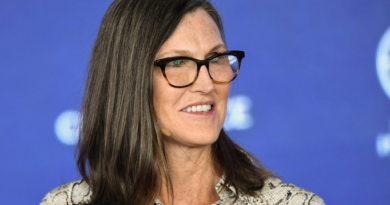Divorce rates among baby boomers are soaring, putting women’s financial security at risk
Good morning, Broadsheet readers! An investigation finds widespread sexual misconduct at the FDIC, young people don’t want to move to states with abortion bans, and women have the most to lose as divorce rates soar among baby boomers. Have a wonderful Wednesday!
– Divorce boom. Divorce rates in the U.S. have steadily declined for almost two decades—except among one segment of the population that has seen an uptick. Called “gray” divorce, those over 50 are leaving their spouses at twice the rate they did in the 1990s (and for those over 65, the divorce rate has tripled), according to a 2022 study published in The Journals of Gerontology. No spouse comes out of a divorce unscathed. Older men living alone are lonelier than their female counterparts, but women, generally speaking, have more to lose financially.
In heterosexual marriages, women are more likely than men to drop out of the workforce in their prime earning years to care for children, putting them at a disadvantage in divorce proceedings. After a split, many women must re-enter the labor force, potentially for the first time in decades. A 2021 study from The Journals of Gerontology finds that women 50 and older who divorce experience a 45% decline in their standard of living, compared to 21% for men, and Pew finds they are more likely to live in poverty than men.
That said, Kelly Mould, senior vice president and financial advisor at Johnson Financial Group, told me that it’s usually women in heterosexual relationships who initiate divorce post-50. By this time, children are usually grown and out of the house, and older women may have built up the courage to strike out on their own, rather than stay in unhappy marriages.
That was the case for Kimberlee Davis, who divorced her husband in her early 50s, despite significant financial fallout. Davis hadn’t worked in the corporate world for over a decade. She’d paused her career to support her husband in his and to care for their three children. But she had always been ambitious. When her marriage ended, it took years to rebuild her credit and earn enough to start saving.
Now 65, Davis is a financial advisor and author, and is thriving in her new life. She still has to catch up on her retirement savings, she says, but she’s remarried, owns a home, and even bought herself a race car. The divorce was a “nuclear explosion” in her life, she says, but the freedom she’s found has been worth it.
Mould encourages both spouses to have their own financial advisor and lawyer to advocate for them throughout a divorce. And Davis advises couples to get prenuptial agreements that outline what one spouse is entitled to financially if they give up their career to be the family caretaker. And always keep tabs on all of your family’s financial accounts, even if you’re not the one working outside the home.
“Maybe you’ll have to live on a tighter budget,” Davis says of post-divorce life, “but the freedom and the chance to go self-realize and live the life you wanted is worth more than any financial stress.”
You can read my full story on gray divorce here.
Alicia Adamczyk
alicia.adamczyk@fortune.com
The Broadsheet is Fortune’s newsletter for and about the world’s most powerful women. Today’s edition was curated by Joseph Abrams. Subscribe here.
ALSO IN THE HEADLINES
– A fleet of their own. The WNBA will fund full-time charter flights for its 12 teams for the first time this season. League commissioner Cathy Engelbert said the program will start “as soon as we can get planes in place.” Players previously took commercial flights to games. ESPN
– Agency overhaul. A law firm investigation found widespread sexual misconduct at the Federal Deposit Insurance Corp (FDIC) and cited the need for a “structural and cultural transformation.” The five-month probe followed allegations of misconduct that first surfaced in Wall Street Journal reports last year. FDIC Chair Martin Gruenberg claimed responsibility for the culture described in the report and apologized. Reuters
– Study of a lifetime. An upcoming American Cancer Society study will track 100,000 Black women aged 25 to 55 over the next four decades to examine how factors like lifestyle and racism contribute to the development and lethality of cancer. Black women are more likely to die from certain cancers than their white counterparts. Forbes
– Best behavior. Elizabeth Holmes, disgraced founder and CEO of blood testing startup Theranos, will now serve four fewer months in federal prison because of good behavior. The convicted fraudster will be released on Aug. 16, 2032. Fortune
– State of play. A new survey of Americans between ages 18 and 34 found that nearly two-thirds would “probably not” or “definitely not” live in a state with an abortion ban. CNBC
MOVERS AND SHAKERS: The E.W. Scripps Company appointed Meredith Delaney to president and CEO of the Scripps Howard Fund. Thumbtack promoted Jelena Djordjevic to chief people officer.
ON MY RADAR
Why maternity care is underpaid Time
What if men were mothers, too? Romper
Witness Anya Taylor-Joy: the ‘Furiosa’ star on making the ‘Mad Max’ icon her own and hopes for ‘Dune 3’ Variety
PARTING WORDS
“The order of the day isn’t censorship, or political correctness; it’s the courage to be our whole self, and in turn to inspire others to do the same.”
— Deepa Purushothaman, author and founder of the re.write, in a new Fortune op-ed discussing the “model minority myth”



